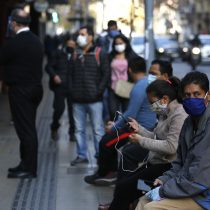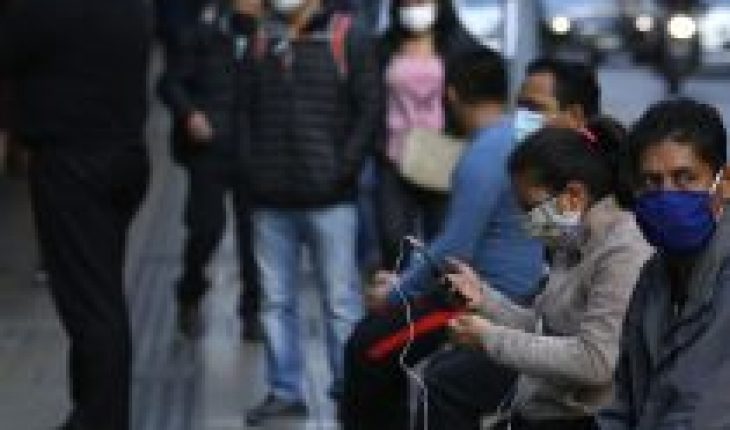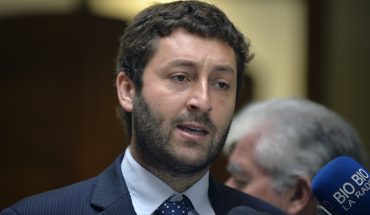
We have experienced the consequences of a devastating pandemic, which has affected the world and every person, especially the most vulnerable, with mourning and anguish. Nearly 30,000 people killed in a year mark the scale of this disaster in Chile.
It adds a crisis in mental health and a massive postponement of treatments; 900,000 jobs to be recovered, SMEs and households squeezed by uncertain income and debt, setback of female labour participation equivalent to a decade, sectors of the economy hit, such as services and culture; mothers and fathers overwhelmed by care, common pots, worsening housing crisis. Our children and adolescents have been locked up for a year, school dropouts jump to 40,000, increased gender-based violence and diversity. There is no doubt that the pandemic has exacerbated pre-existing inequalities and vulnerabilities, leaving in dramatic evidence the fragility of our social pact and basic insecurities in the face of adverse events.
Our first task must be to take care of the harsh reality left by the pandemic. We propose to implement a comprehensive sustainable and supportive recovery plan – a kind of Marshall Plan as happened in Europe after World War II – to lift the country after a large-scale disaster. In the short term, 2022, this must be faced with Fisco resources, with an expansive fiscal policy. The total cost is uncertain, due to the uncertain evolution of the pandemic, but an increase in public spending of 5 points of GDP by 2022 is in the range of what is expected. Fiscal consolidation will start in 2023, once we have strongly revived the economy and jobs.
To rebuild better is to rise from the pandemic with a transformative vision, to recover the situation of Chilean households, to address the urgencies of the short term and in the process, to advance the medium-term structural changes that Chile needs. Therefore, reconstruction will be organized around five axes: 1) green growth, 2) digitization, 3) gender and feminist seal, 4) reduction of inequalities and 5) decentralization and territorial dimension in public policies. The new Government will be a government of reconstruction and transformation.
In the medium term, the exit from the pandemic must be spliced with structural reforms in social protection, pensions, health, housing, education, public safety and the environment, which allow a qualitative leap in reducing the inequalities and uncertainties affecting the vast majority. Coming out of a political and social outburst, it is clear that this leap is indispensable for social cohesion and intercultural coexistence in Chile. To finance these demands, a permanent increase in collection will be required, so that those with the most contribute more.
In the short term, the four priority lines of action are to restore people’s health, ensure income, economic revival and employment, and, a remedial plan in education.
In health, for example, it is estimated that both specialist and elective surgeries fell by 40%. GES waiting lists have also increased. We propose to strengthen the funding of the APS network and hospital to provide back-to-back benefits. Improving primary universal health care will enable progress towards universal health insurance. It will also be essential to advance hybrid systems of face-to-face care and telemedicine, and to implement mental and dental health plans.
If necessary, emergency income will be maintained to ensure basic household income and financial consolidation programmes to restructure credits and payments for families and SMEs.
A central focus is job recovery and sustainable revival. Together with promoting a portfolio of infrastructure projects, employment plans and training and support for SMEs with coverage in all regions, it is central to address urgent environmental challenges and technological change, driving public investment with a focus on green and digital.
We hope to launch a quality public housing program that responds to the immense housing deficit and improves energy efficiency, thermal conditioning of vulnerable housing; employment programmes – rural and urban – focused on forest fire prevention, tree reforestation and planting, boosting electromobility, encouraging investments in electric charging stations throughout Chile.
To reach the government, implementWe are a massive ICT-focused training and digitization program – about 100,000 people in 18 months – to empower workers with the new skills demanded by technological change, enabling people to reconvert and reduce gender gaps in labor and digital participation. The increase in gender gaps will be addressed with specific tools, encouragement of women-focused employment and women-led endeavors, a major boost to the care economy.
In education, we will renew the infrastructure of public schools, including full connectivity of schools and students. After more than a year of interrupted education, a remedial learning program will be implemented and others seeking to reinsert students who defected. It is essential to strengthen psychosocial capacities in public and subsidized schools with a sense of urgency. Also, taking into account the current deficit, a construction plan of 300 crib rooms and children’s gardens of the public network will be initiated.
The State is irreplaceable to lift the country from a pandemic whose consequences will be felt for years. This is how Joe Biden has understood it in the US. The U.S. and Jacinda Adern in New Zealand with comprehensive recovery plans, lifting the strategic role of the public sector and raising the tax burden on those with the most. Unfortunately, the Government of Chile remains in the press of neoliberal ideology and fails to understand these signs of a new era. Given the sense of urgency and planning required, in the coming weeks we will disclose more specific measures in these and other areas. We need a powerful reconstruction that will set a new course for the country.
The content poured into this opinion column is the sole responsibility of its author, and does not necessarily reflect the editorial line or position of El Mostrador.





